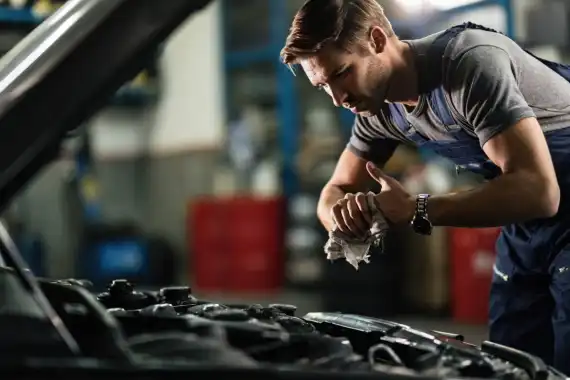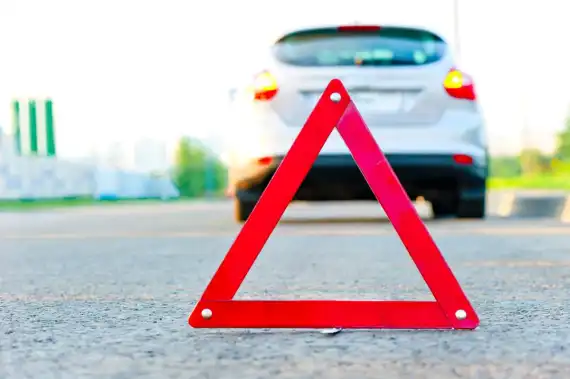
The most common reason cars breakdown is a flat battery, Admiral confirmed. The insurer also listed the nine other most common reasons they fail to make a top 10. Its conclusions are based on internal data. Let us summarise the faults and see how staying alert, maintenance, and basic checks can keep your car on the road.
Click here to get your 6 months FREE WarrantyUse code - Reg6
1. Battery
You car’s battery can fail due to age, lack of recent use, and loose terminals. To minimise such issues, check your battery is healthy and charged via an analyser. This simple tool costs very little money. If the battery is towards the end of its life, you can then swap it before it fails completely and causes a breakdown.
2. Tyres
Tyres fail for many reasons. They include hitting a pothole, wear and tear, low pressure, and being damaged by sharp objects. Check your tyres regularly to reduce the risk of breakdown. Look for bulges, cracks, and foreign objects. Check the tyre pressures, too.

3. Engine and exhaust
Engine and exhaust faults cause many breakdowns. This category covers a wide range of problems from very serious to minor. A broken engine timing belt can be serious, for instance. A rusty exhaust muffler that falls off its bracket is less worrying. Minimise such issues by maintaining your vehicle. A timing belt should be replaced at the intervals recommended by the manufacture. A rusting exhaust can be replaced before it completely falls apart.
4. Electrical
Electrical faults come in many shapes and sizes. Some cannot be predicted and thus avoided – whereas others can. Bad spark plugs can make your engine run poorly, for instance. That is predictable. Replace the plugs at the recommended intervals to avoid any issues.
5. Steering, suspension, brakes
Steering, suspension, and brake faults can stop vehicles. To minimise the risk listen for strange noises such as clunks and rattles. Also note odd feelings through the controls such as a spongy brake pedal. Check the fluids, too. Ensure there is plenty of power steering and brake fluid in the reservoirs. Have any problems fixed before they get serious enough to cause a breakdown.
6. Fuel
Countless drivers breakdown because they put the wrong fuel in their car. To avoid this mishap, note any label on your vehicle that states what is required. However, if you do fall foul do not start the engine or even slightly turn the ignition key. This minimises any damage and expense. Simply call a rescue company that can drain your fuel tank on site. Other fuel related issues that cause a lot of breakdowns relate to the pump, injectors and filter.

7. Clutch
Once a clutch has failed the car cannot move. To avoid this scenario, replace the clutch the moment it shows signs of significant wear. Clutch slip, for starters. This is when you release the clutch pedal, press the accelerator, but the vehicle does not pick up speed. The engine revolutions rise, though. Also note any difficulty changing gear, strange noises when you press the clutch pedal, and peculiar sensations through the clutch pedal.
8. Alarms, locks, and keys
Your car’s alarm, locks, and key can be problematic. To avoid getting locked out and having to call for help, ensure that the vehicle’s battery – and the battery inside your key fob – have plenty of charge. A low vehicle battery may also trigger the alarm.
9. Charging
The vehicle’s battery is recharged by the alternator while the engine is running. If it or a related component fail, the battery will go flat and the engine will not start. Watch for a warning light on the dashboard that suggests there is a problem. Also, regularly replace the serpentine belt that powers your alternator.
10. Cooling
Your car may breakdown if its engine overheats. Overheating can be caused by a worn radiator, thermostat, or a coolant leak. The consequence can be significant damage that is expensive to fix. Keep a close eye on the temperature gauge on the dashboard. If the engine is too hot, stop as soon as practical then turn the car off.
Click here to get your 6 months FREE WarrantyUse code - Reg6


